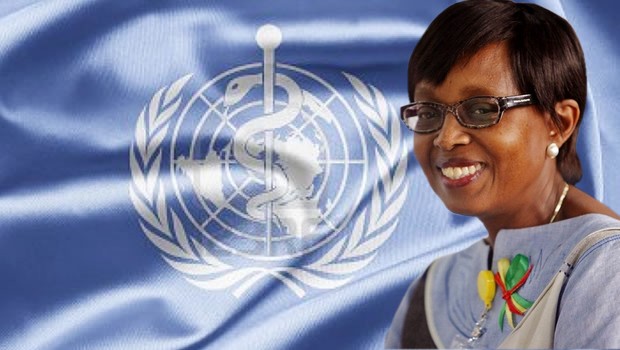By Asmau Ahmad
The World Health Organisation (WHO), Regional Director for Africa, Dr Matshidiso Moeti, has highlighted some of the key lessons learnt from the COVID-19 pandemic.
Moeti spoke at a session moderated by Dr Ebere Okereke, the Chief Executive Officer of Africa Public Health Foundation, at the Africa Health Agenda International Conference in Kigali, Rwanda.
The conference had the theme: “Resilient Health Systems for Africa: Re-envisioning the Future Now.”
She said: “What we have learnt from the pandemic is that first, health is a determinant of development, a determinant not only of development but also of national security. That is what we saw from the COVID-19 pandemic.
“It had such an impact on other sectors, economies, security across board. So, what that teaches us is that it’s very important to invest in health.
“It can knock out the economy, education and it can have positive effect on development. We can no longer refer to health as a social sector that is just swallowing up money.
“And then, secondly, we saw with great encouragement, that there’s a strong connection between politics, connections of politics, political leaders and health outcomes.
“And we saw it in the kinds of action that political leaders took to be the ones that convened the coordinating bodies that advised on what to do in response to the pandemic.
“We saw suddenly the leadership of health ministers, an issue for determinants to reach the highest political decision makers in countries for their action.”
She noted that it was encouraging and interesting that countries were involved not only at the national level but at the continental level.
Moeti said that African political leaders came together when they recognised that the continent was being disadvantaged, particularly in terms of access to certain tools.
She added that they created a platform which took decisions, actions, kept some champions and really made a difference.
“Thirdly, one of the questions we didn’t ask ourselves earlier as we were planning for the response to the pandemic was, what risks were there?
“What we saw was that since international goodwill could be vulnerable, then every country needed to look after itself.
“So, we need to factor that into our planning. But I think more importantly, we will need to factor that into some of the global conversations that are going around the pandemic.
“Then, on the treaty, how countries should work together at the global level. So, I would like to really emphasise the fact that equity should move forward at all levels, at a global level and national level across the continent.
“And then finally, we also saw that it’s important to obtain tailored approaches that are relevant for countries,” she said.
Moeti affirmed that there were many discussions on the pandemic, about social media, lockdowns in African settings where people live in very crowded conditions, slums and others.
“But we saw some countries take courage and adapt some of the global guidance and make use of them for their own safety.
“And then finally, we really learned that communities are at the epicentre of everything that we do.
“The fact that as scientists and experts, we need to translate what we say so that communities will understand was one of the painful lessons of COVID-19.
“We need to articulate science in such a way that politicians can make the right decision, understand it, and be connected to communities.
“Before all of these, we need to be investing in all of these in peacetime, so to speak, so that we build the kind of resilience in our health system,” she added.




